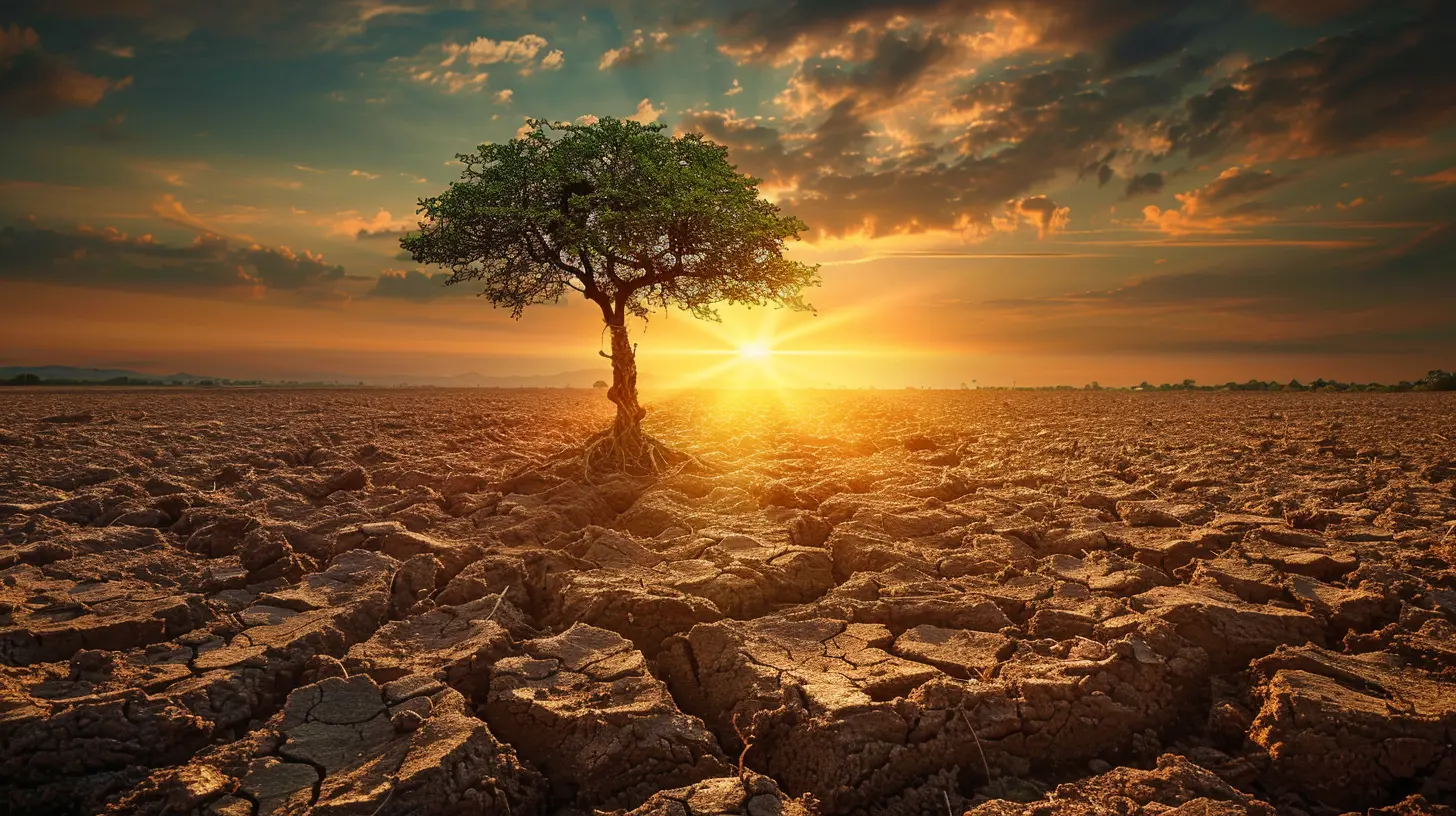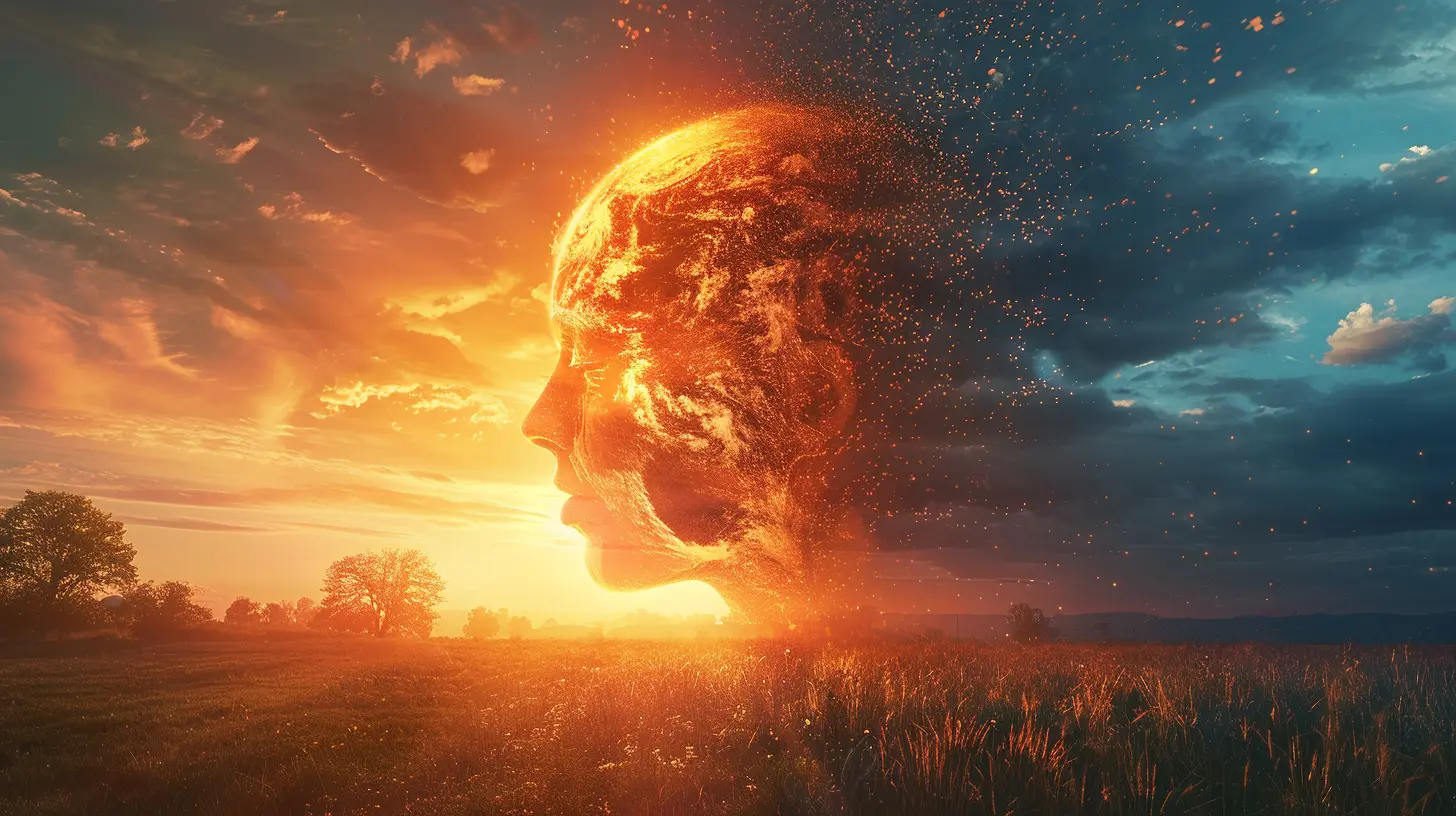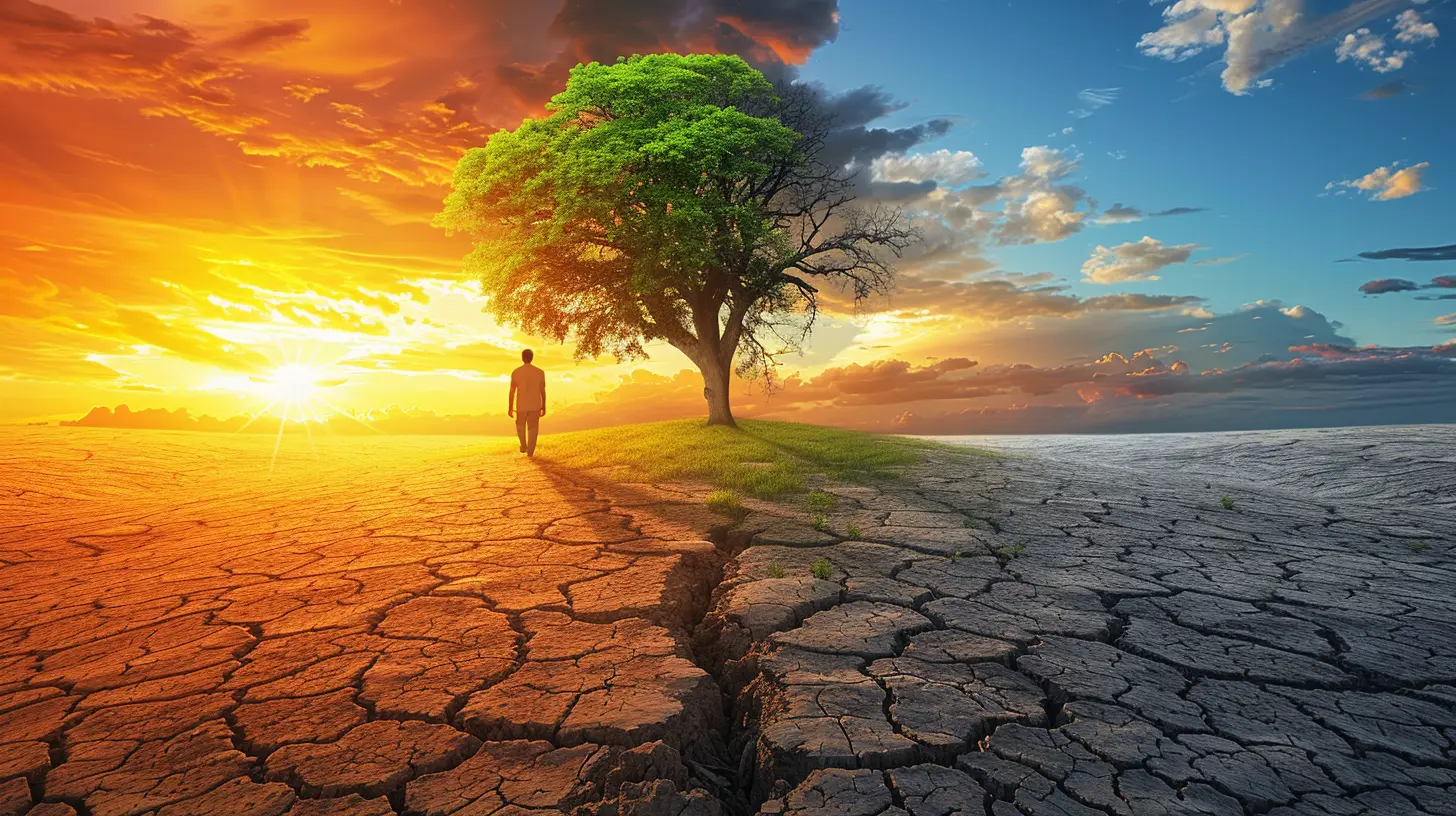Exploring the Psychological Impact of Climate Change Anxiety
22 September 2025
Climate change is no longer a distant threat—it's an ever-present reality. Rising temperatures, extreme weather events, and melting ice caps dominate the headlines. But beyond the physical destruction, there's another crisis silently unfolding: climate change anxiety.
Ever feel overwhelmed by the sheer scale of environmental destruction? You're not alone. Climate anxiety is real, and it’s affecting mental health worldwide. But what exactly does it do to our minds? And how can we deal with it? Let’s dive in. 
What is Climate Change Anxiety?
In simple terms, climate change anxiety is the distress caused by our awareness of environmental issues. It’s the sense of fear, helplessness, and even guilt about the planet’s future.With every wildfire, flood, and heatwave, our concern deepens. We see species disappearing, forests burning, and sea levels rising. The more we understand the impact, the harder it becomes to ignore. While awareness is crucial, it sometimes spirals into chronic worry, affecting our mental well-being.
But is it all in our heads? Not at all. Psychologists recognize climate anxiety as a legitimate emotional response—one that’s growing rapidly across all age groups. 
Who is Affected the Most?
Though climate anxiety can impact anyone, some groups are more vulnerable than others:1. Young People
Ever heard the term "eco-anxiety"? It's especially common among younger generations. Gen Z and Millennials are highly aware of the climate crisis, and many feel burdened by the responsibility of fixing it. Some are even reconsidering major life decisions, like having children, due to their fears about the future.2. Indigenous Communities
For Indigenous populations, climate change isn’t just about a distant future—it’s about their present survival. Many communities rely on the land for food, shelter, and cultural traditions. Rising sea levels, deforestation, and changing ecosystems threaten their way of life right now.3. Scientists & Environmental Activists
Imagine dedicating your life to studying climate change or fighting for the environment, only to see things getting worse. Many climate scientists and activists experience burnout, frustration, and even depression as they witness the slow response to this crisis.
How Does Climate Anxiety Affect Mental Health?
1. Chronic Stress & Worry
Ever felt your heart race after reading about a natural disaster? Climate anxiety triggers a constant state of stress. The “fight or flight” response kicks in, and when it doesn’t shut off, it leads to long-term mental exhaustion.2. Feelings of Hopelessness & Depression
It’s easy to feel powerless in the face of such a massive issue. Many people dealing with climate anxiety report feelings of helplessness or despair, believing that no matter what they do, it won’t be enough. This type of mindset can spiral into depression.3. Guilt & Eco-Grief
Do you ever feel guilty for using plastic, flying on a plane, or not being "sustainable enough"? This guilt, combined with the grief of watching ecosystems collapse, contributes to a deeper sense of loss known as eco-grief.4. Sleep & Concentration Problems
When your mind is overloaded with worry about the planet, it’s tough to relax. Insomnia, difficulty focusing, and increased anxiety about daily life are common symptoms of climate stress.
Why is Climate Anxiety on the Rise?
There are a few key reasons why climate anxiety is growing at an alarming rate:1. The 24/7 News Cycle
Every day, we’re bombarded with news about natural disasters, vanishing species, and political inaction. Social media amplifies these concerns, making them impossible to ignore.2. Personal Experiences with Climate Change
It’s no longer just happening "somewhere else." More people are experiencing climate disasters firsthand—wildfires, hurricanes, extreme heatwaves. When you live through it, the fear becomes personal.3. Lack of Effective Climate Action
There’s a deep frustration in knowing that despite urgent warnings from scientists, meaningful action is still slow. Governments and corporations promise change but often fail to deliver impactful solutions. This lack of progress fuels a sense of despair.Coping Strategies: How to Manage Climate Anxiety
Feeling anxious about the future is understandable, but it doesn’t mean we’re powerless. Here are some ways to manage climate anxiety and channel it into something positive:1. Acknowledge Your Feelings
Ignoring anxiety won’t make it go away. Accepting that climate stress is a real and valid emotional response can help you process it in a healthier way.2. Take Small But Meaningful Actions
No one can solve climate change alone, but small actions add up. Reduce waste, support sustainable brands, vote for eco-friendly policies—every step matters. Instead of focusing on what you can’t do, focus on what you can.3. Set Healthy Boundaries with Climate News
Yes, it’s important to stay informed, but doom-scrolling through climate horror stories 24/7 isn’t productive. Limit your exposure to stressful news and take breaks when needed.4. Connect with Like-Minded Communities
Feeling isolated in your concerns makes climate anxiety worse. Join local environmental groups, attend activism events, or simply talk to friends who understand. Shared action can ease feelings of helplessness.5. Find Hope in Climate Solutions
While the bad news dominates, there are success stories. Advances in renewable energy, conservation efforts, and global sustainability initiatives prove that progress is possible. Shift your focus to solutions, not just problems.6. Seek Professional Help if Needed
If climate anxiety is severely affecting your mental health, don’t hesitate to talk to a therapist—especially one familiar with eco-anxiety. Mental health professionals can provide tools to navigate these emotions effectively.Final Thoughts: Turning Anxiety into Action
Climate anxiety is hard to escape, but it doesn’t have to consume us. Instead of letting fear paralyze us, we can use it as fuel for positive change. Imagine if every anxious person took action—big or small. The collective impact would be powerful.At the end of the day, we can’t control the entire planet, but we can control our response to it. So, rather than drowning in hopelessness, let’s turn our anxiety into advocacy, our worry into work, and our fear into fuel for a better future.
all images in this post were generated using AI tools
Category:
Psychological ResearchAuthor:

Nina Reilly
Discussion
rate this article
1 comments
Issac Martin
In shadows of green, our hearts entwine, Nature's cry echoes, a fragile design. Hope blooms where despair dares to shine.
September 28, 2025 at 3:52 PM

Nina Reilly
Thank you for your beautiful reflection! It captures the essence of our connection to nature and the resilience found in hope amidst climate anxiety.


